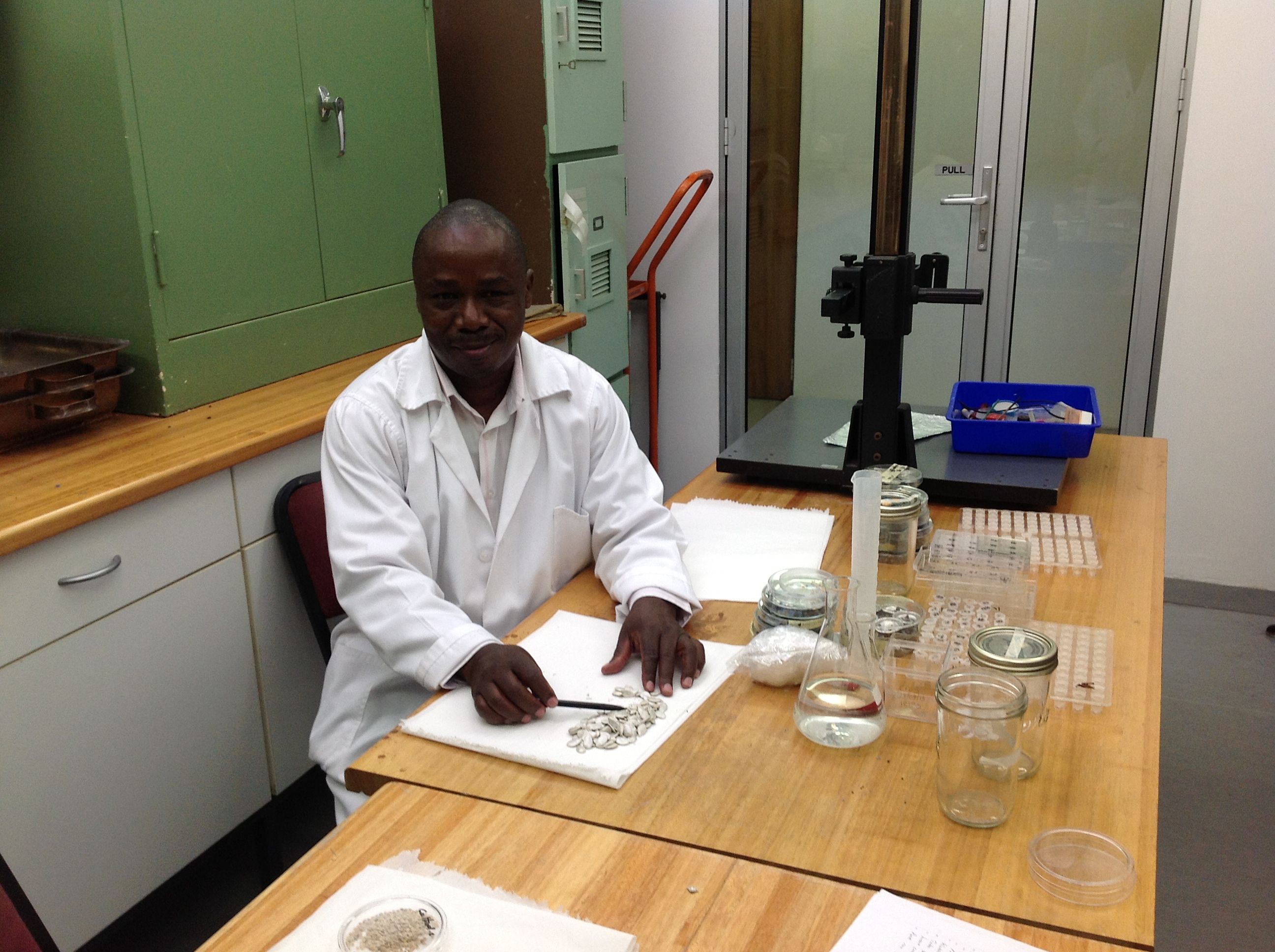
Contact
Room 05-025, Biological and Conservation
Science Building, Westville Campus
Tel: +27 31 2601658
Fax: +27 31 2601195
email: gondwe@ukzn.ac.za
Research title: Assessment of seed deterioration and potential amelioration measures for four orthodox species: Widdringtonia whytea, Pisum sativum, Cucurbita maxima and Lycopersicon esculentum
Brief Description: Seeds may be stored either in the short-term to provide high quality planting material from one season to the next or in the longer-term as active collections sapmles of which are available for distribution. Most importantly, seeds are also stored as long-term base collections conserving genetic resources and diversity. One of the major functions of ex situ seed conservation is to maintain germplasm suitable for restoring wild populations. Seed quality, therefore, must be maintained over extended periods. However, no matter how good the storage conditions, all seeds undergo deterioration (known as aging processes) during long-term storage which lead to deteoration in both vigour and viability. This reduction and 'performance' is of considerable financial concern to the seed industry, and this is also of global concern with respect to the long-term conservation of genetic diversity, both of wild species and in the agricultural and horticultural sectors.
We are fortunately placed in being able to acquire both fresh and long-term storage seeds of selected species, the long-term storage vegetable seeds have been made available by the manager of the Gene (seed) Bank of Agriculture Research (ARC) in Pretoria, while acquisition of the seeds of Widdringtonia whytei of Malawian provenance has been facilitated through the Millenium Seeds Bank Project.
Many of the processes leading to the loss of vigor and viability are oxidative in nature, generally involving reactive oxygen species (ROS) which derive from the reduction of oxygen. this results in the formation of superoxide (O2-), hydrogen peroxide (H2O2) and hydroxyl radicals (HO), to mention but a few. The thrust of this study is to establish firmly involvement of ROS in the deteorative processes, importantly, to assess the potential of the use of anti-oxidants to ameliorate the damage accrued in the storage, and hence improve seed vigour. The project will investigate the underline oxidative/ anti-oxidative biochemistry involved both as strictly controlled 'messengers' in germination, and underline damage. This will include quantitation of ROS, and assays of the level of non enzymic activity of enzymic anti-oxidants in untreated seeds of selected species, and after a spectrum of measures are entrained to counteract (ameoliorate) ROS-mediated damage.
This investigation on desiccation tolerant (orthodox) seeds will be the first of its kind, and is envisaged to complement on on-going work in the Plant Germplasm Conservation Research Unit laboratory, where applications of cathodic amelioration in the context of cryopreservation of embryonic axes from desiccation-sensitive (recalcitrant) seeds has shown definite promise.